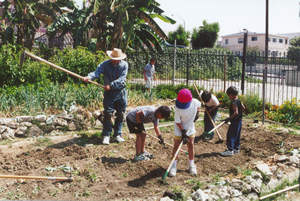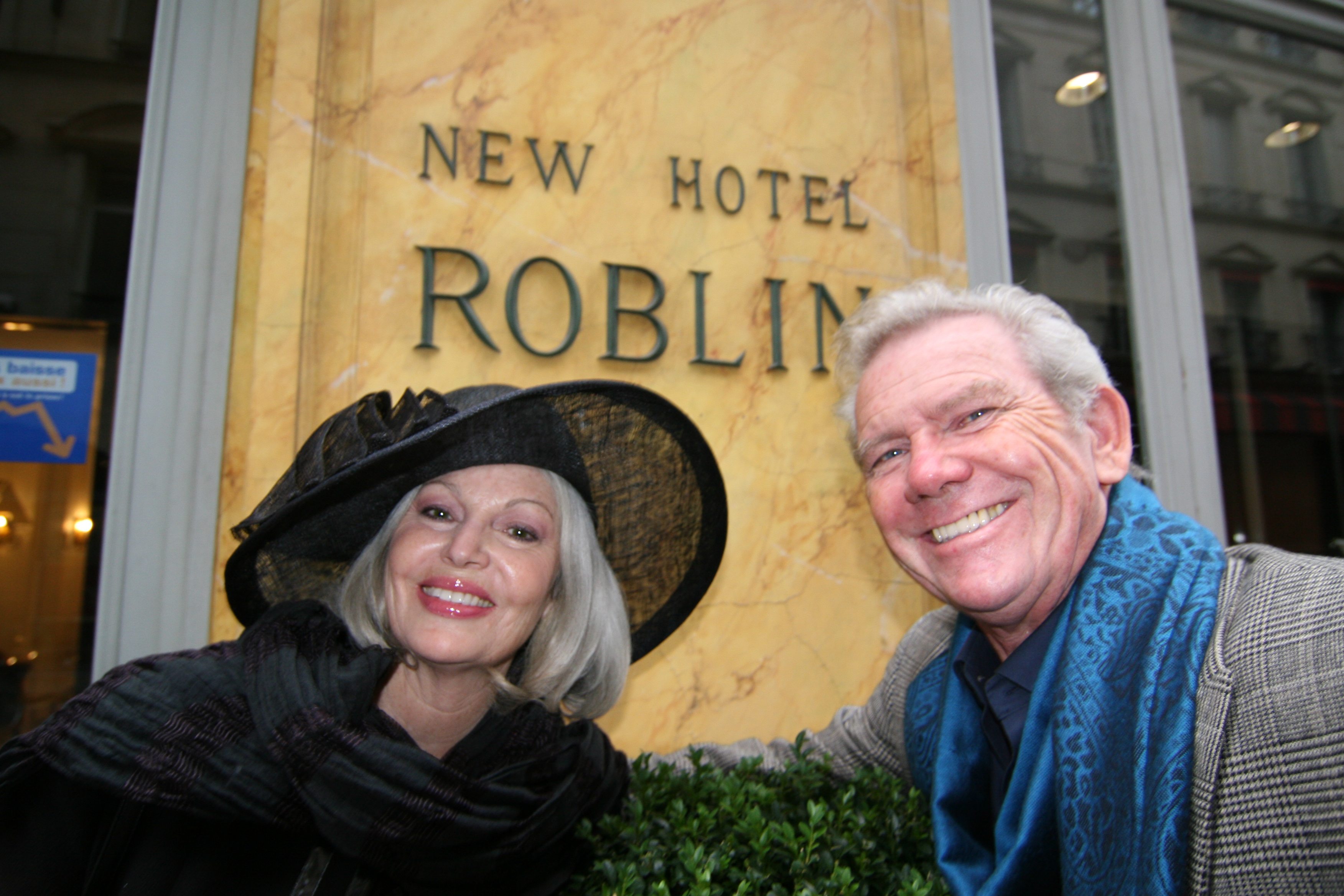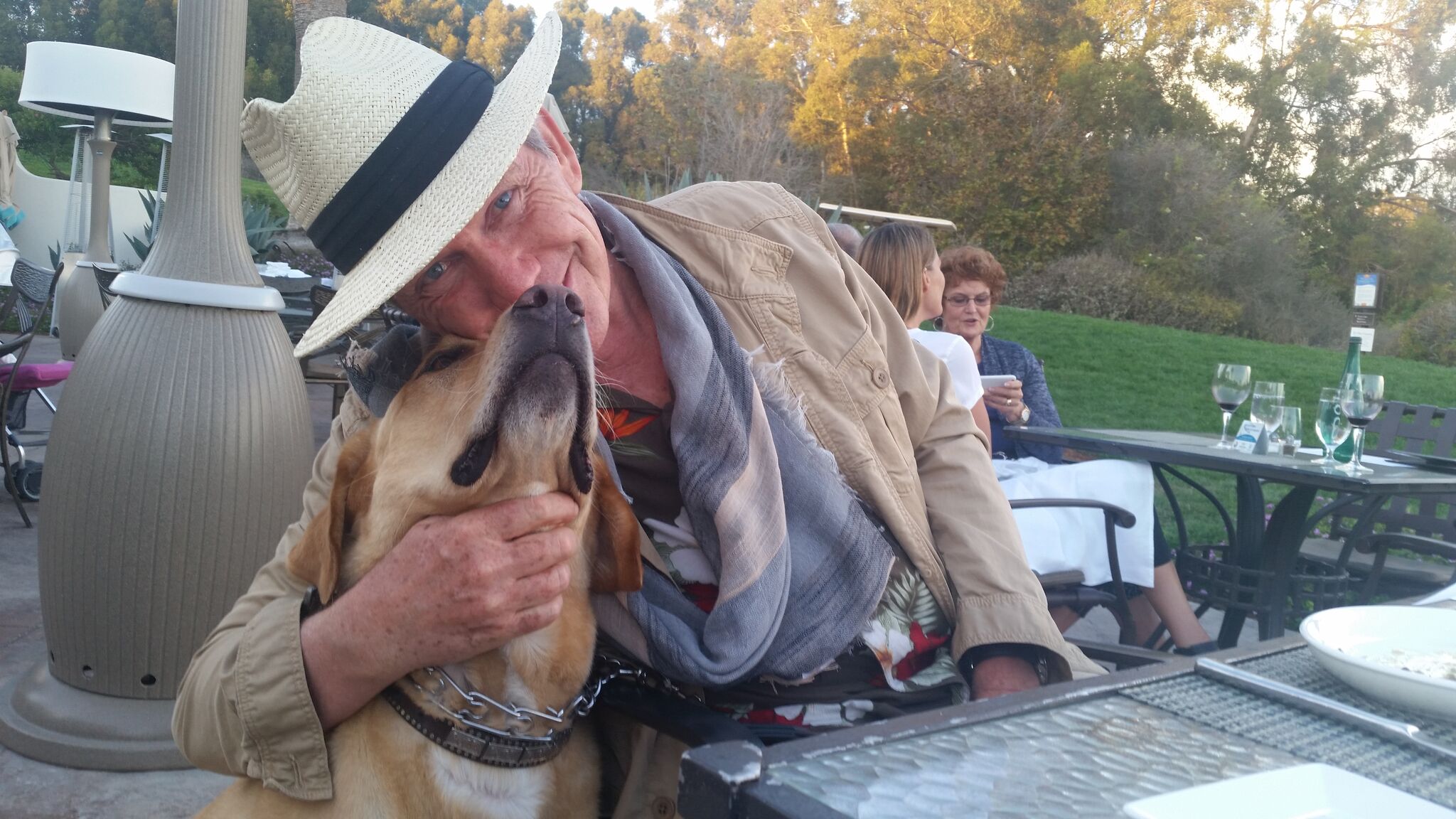
By Alanna Brown, LuxEco Editorial Assistant
“Give a man a fish and you feed him for a day. Teach a man to fish and you feed him for a lifetime.” In the 1970s, several senators began to recognize a literal truth behind this Chinese proverb. They realized the importance of teaching the man how to provide his own food source. When the government grasped the self-sufficiency and power of being able to fish, or in this case garden, they began granting $100,000 per year to gardening programs. This evolved to $100,000 to each of 20 metro areas around the United States, one of them being Los Angeles. And this, in turn, trickled into the University of California Cooperative Extension Program in LA County. The Cooperative Extension’s Common Ground Garden Program was founded in 1978 and has since focused on nutritious food options for low-income and underprivileged Los Angeles residents, for whom “organic” practices might otherwise be out of reach.
By offering gardening education, the program conquers an array of significant concerns. It improves health and nutrition, provides regular access to fresh produce, cultivates relationships between neighbors and communities, and imparts invaluable knowledge to many in need. The Common Ground website says:
“Families learn how to garden, grow their own food and prepare it in a healthful manner. In addition, the program trains community volunteers and Master Gardeners, who in turn, volunteer their time to community and school gardens.
In 2009, 192 Master Gardeners volunteered 9,955 hours, serving 63,624 low-income gardeners in Los Angeles County at 41 community gardens, 71 school gardens, 14 homeless and battered women’s shelter gardens, 6 senior gardens, and 14 fairs and farmers markets.”
Program manager Yvonne Savio, who was named 2010 Horticulturist of the Year by Southern California Horticultural Society and given the 2007 Lifetime Achievement Award by the Los Angeles Community Garden Council, grew up an avid gardener in Pasadena. Her parents were more attune than most to nutrition and farming, thus she was raised on all home-grown fruits and vegetables and even had her own strawberry plot at a young age. Savio has worked most of her life to correct the wide misconception that gardening requires a large plot of land and lots of money. “That’s just not true,” Savio said in an interview. “If you have so much as a small container and a patio or window facing south or west, gardening can be totally small-scale, accessible, and inexpensive.”
A major achievement of the Common Ground Garden Program has been planting new gardens throughout the city and helping existing gardens to thrive. In 2010, the programs’ master gardening course had the first graduation in which each of the 50 graduates went on to fulfill this vision by either expanding an existing garden or creating a new one. These students applied their knowledge to all varieties of gardens, including churches, community gardens, women’s shelters, and public schools; the latter being a main focus of Common Ground.
“School gardens are an essential avenue toward growing our next gardeners and healthy eaters. Because if a child grows something, he will eat it,” Savio said. In 2007 she was awarded the Certificate of Commendation by Los Angeles Unified School District for her work in public school gardens. She imparted that teachers often take the master gardening course because they want hands-on, experiential know-how to take back to the classroom or school garden, where virtually all lessons can be implemented; science, math, art, and nutrition. The program also gets parents applying to the course, wanting to know how to grow “this” or “that” (rutabaga, for example) in the home garden because their child ate it in the school garden and loved it. All students in the master gardening course have a full day working in a school garden.
All master gardeners also get a full day working in a community garden while taking the course. This is another type of garden that Common Ground focuses on building. The community gardens throughout Los Angeles have quarterly picnics where there is a sharing and exchanging of produce, gardening technique, knowledge, etc. Community gardens are a great place for people of all ages, ethnicities, nationalities, and socio-economic status to not only grow their own organic produce, but to simply come together. “Gardens foster neighborliness,” said Savio. “This is where it all comes together.”
The master gardening course, which offers 78 hours of intensive training based on organic techniques, is free in exchange for 50 volunteer hours at a local garden. However, there are only 50 spaces available out of many applicants and there are basic requirements for acceptance. The program is also taking donations to further their Grow LA Victory Garden Initiative, which spreads the opportunity to teach families and communities about basic gardening through a series of 4 classes.
Through the master course, a few classes, or by getting involved in a local garden, there is an enormous opportunity to receive a lifetime of invaluable knowledge—the wisdom of knowing how to “fish.”













